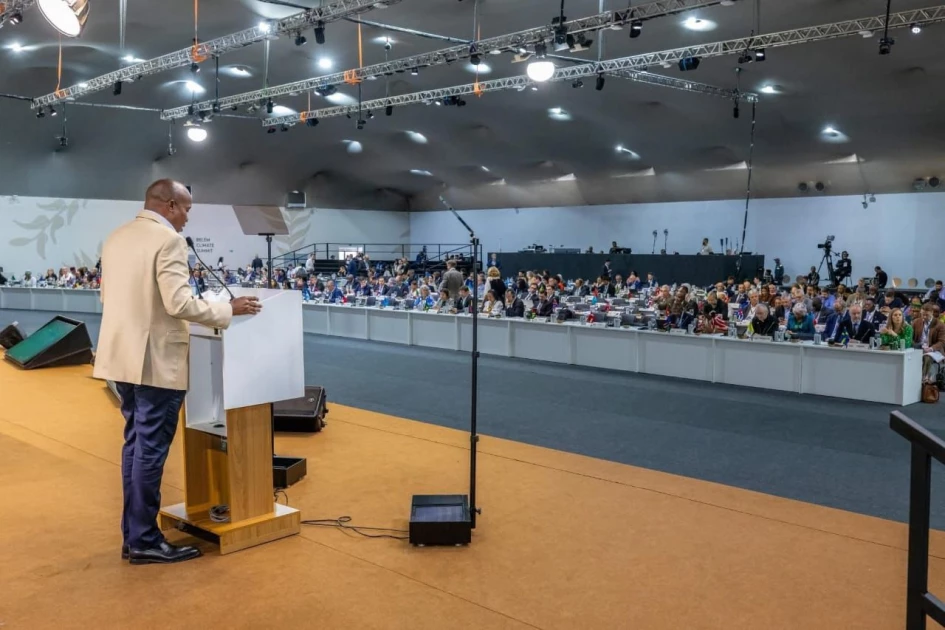DP Kindiki showcases Kenya’s clean energy success at COP30 in Brazil
Published on: November 09, 2025 01:26 (EAT)


Audio By Vocalize
Just hours after brokering a deal to end the university lecturers’ strike, in what insiders describe as a tense, closed-door negotiation lasting several days, Deputy President Prof. Kithure Kindiki jetted out to Belém, Brazil, for the 30th Conference of the Parties (COP30) to the United Nations Framework Convention on Climate Change (UNFCCC).
At the global summit, Kindiki, a seasoned law professor and climate governance advocate, highlighted Kenya’s remarkable progress in the clean energy transition, noting that 93% of all energy generated in Kenya now comes from renewable sources, including solar, wind, and geothermal.
“This remarkable achievement has earned Kenya global recognition,” he said, adding that the country is now focused on achieving 100% green energy by 2030.
Currently, three out of every four Kenyan households (75%) have access to electricity, with 10.6 million homes already connected to the grid. With intensified investment in last-mile rural electrification, the vision of universal access by 2030 is within reach. Kenya’s clean energy agenda is backed by a USD 600 billion investment plan, mobilised locally and internationally, and a workforce reskilling programme designed to accelerate the energy transition.
The government also aims to phase out biomass cooking by 2028, a major step toward greener, healthier communities. Prof. Kindiki underscored that Africa holds the key to the global green transition, pointing to the continent’s vast untapped renewable resources, critical minerals, and youthful population capable of powering the next generation of sustainable industrial growth.
He urged increased global investment in renewable energy, the honouring of climate finance pledges, and a reform of the global financial system to make capital more accessible and affordable for developing nations. “The world must ensure that women, youth, and farmers are empowered,” Kindiki said, “so that the benefits of the green economy are shared equitably across communities, genders, and generations.”


Leave a Comment